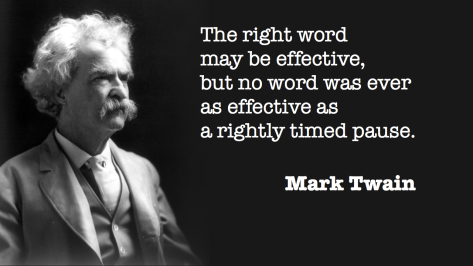I’ve read several crime novels recently, which appeared to have been written with the sole intention of testing how strong my stomach is, with detailed descriptions of mutilations, torture and decomposition.
Most of them were marketed in a steampunk/Goth/alt.horror way, trading on the image of the author. Chuck Wendig has a strong reputation, and several members of the Colony have mentioned his cantankerous newsletter sent from him blog Terrible Minds.
His Blackbirds is scabrous, but relatively mild compared to a couple of other gruesome novels I gave up on. Sacrificing plot and characterisation for explicit descriptions of dismemberment and torture makes me indifferent as to what happens to the protagonist or antagonist. Perhaps I shouldn’t be surprised at this trend, for people are hardened to viewing atrocious acts—try looking at the Daily Mail website, where there are embedded videos of violence and people dying.

I’m not being hypocritical, for though I write crime novels featuring murder, I always emphasise the effect the death has on the victims’ friends, relatives and acquaintances. The killers’ emotions are described too—and they are not always what the reader expects.
As I’ve mentioned recently, I’ve just read Natural Causes by James Oswald. It’s the first in a series about an Edinburgh detective, in which he’s investigating a ritual murder of a walled-up corpse from 65 years ago, which he theorises may be linked to a series of recent killings of prominent men, who all have their entrails exposed. It’s gory, but the author doesn’t dwell on it too much. All the same, it came as a surprise to me, for the overall tone of the story is quite genteel with lots of inner dialogue.
On finishing the book, there’s a note from James Oswald about how he moved from writing fantasy stories to the crime genre. He explains that Natural Causes started off as a short story, which he expanded and entered into the Debut Dagger competition of the Crime Writers Association. To grab the judge’s attention, he added shock value, telling the ritual killing from the point of view of the victim:
‘I have always had rather mixed feelings about the scene, though. On the one hand, it is undoubtedly a powerful hook that sets up the background to the story. On the other, it’s a 500-word graphic description of a brutal, ritual gang-rape and murder.’
Readers also had mixed feelings, some being put off reading on, others complaining that it clashed with the rest of the story. The offending chapter is printed after the explanation, and really it belongs more to a horror story. For the paperback edition I read, the original chapter for the short story version is used, which still isn’t for the squeamish, as it describes a corpse sitting in a chair with its innards streaming down onto the floor.

As it turned out, he got short-listed in the Debut Dagger, before going on to sell 350,000 copies of his novels as e-books. The thing is, his gruesome opening may have contributed to him being placed in the competition, so although he had a change of heart about it, the gore was his calling card.
The word ‘gore’ is relevant to me, as I quietly contemplate the plot of my sixth Cornish Detective novel, which will feature a crime scene awash with gallons of blood, but no corpse. The blood, when analysed, turns out to come from several people and a variety of species of animal! I’m looking forward to writing it this summer, but am staying on course with my self-promotion campaign of blogging and social media posting. I don’t think I’ll be able to write a bloodbath that’s not repulsive…then again, some readers like being scared.
There’s a specific fear of blood, called haemophobia
which is described by psychologists as ‘irrational’, though to my mind, seeing what should be in being out is highly rational a fear. Lose 30%-40% (about 3-4 pints) of your blood and you’re headed towards a state where transfusion won’t save you. I’ll inject a personal anecdote here (pun intended) for I bled out at the age of 11, following botched dental surgery, which saw me dead for a few minutes as they attempted to restart my heart. This may explain my weirdness! The dentist who operated on me was drunk, going ahead with the extraction without the required presence of an anaesthetist; he was struck off, forbidden to practice. It’s a wonder that I’m not haemophobic.
It’s worth remembering, that the first books we read as children are often violent fairy tales, and campfire storytelling, from the time of the caveman, was aimed at being scary.
What sort of books scare or repulse you?
Do you have any phobias?
Do you like gruesome tales?
What are your favourite scary stories?


















